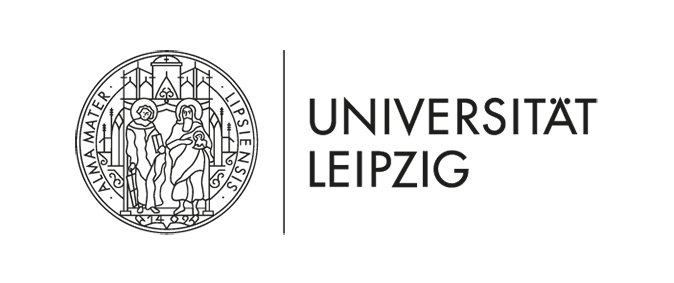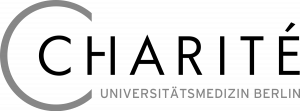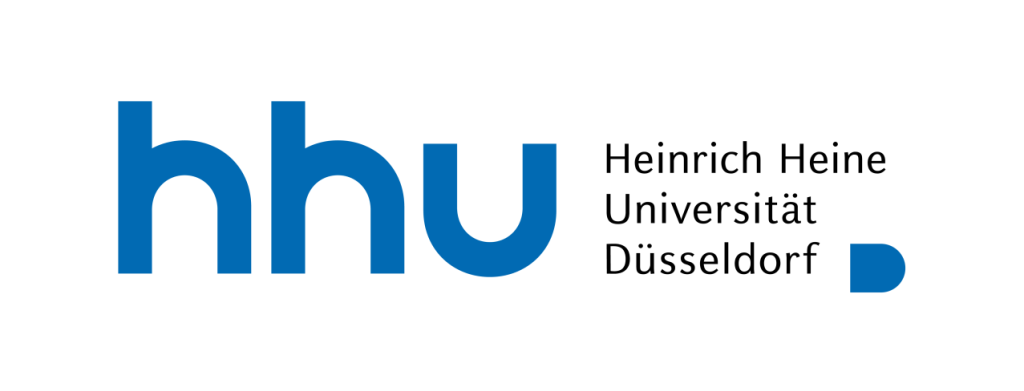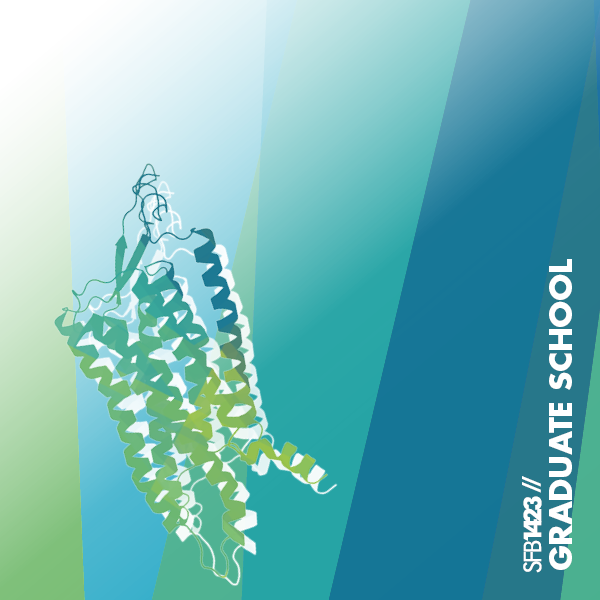

Graduate School of the SFB1423
The goal of this Integrated Research Training Group (IRTG) is a training program that comprehensively addresses all aspects of current GPCR research. This profile will qualify graduates for an independent career in various acdemic and industrial areas. The doctoral researchers are expected to spend about 5-10% of their time on qualification, which is mainly covered by this program. A comprehensive qualification program will be established comprising four sections: scientific modules, annual summer schools, international laboratory rotations, and professional skills workshops. The SFB1423 depends on interdisciplinary collaboration of the project leaders. That also applies to the research projects of the doctoral researchers. Therefore, each doctoral researcher will be co-supervised by at least two advisors.
General information
Upcoming Events
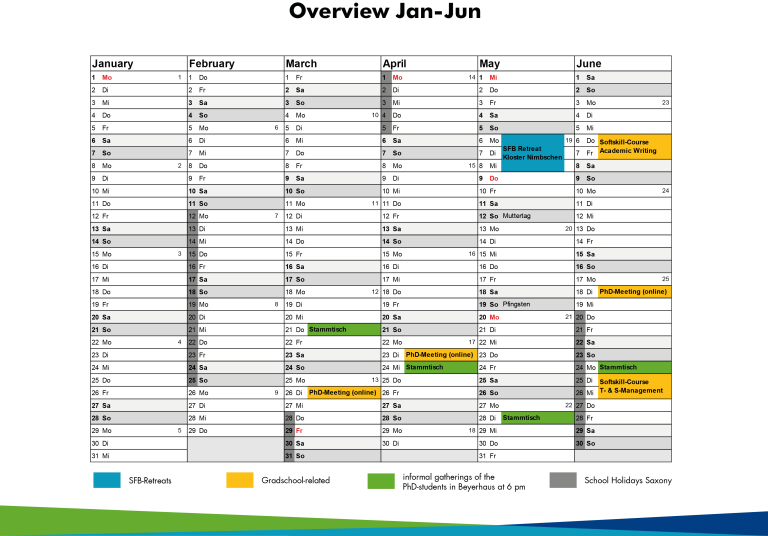
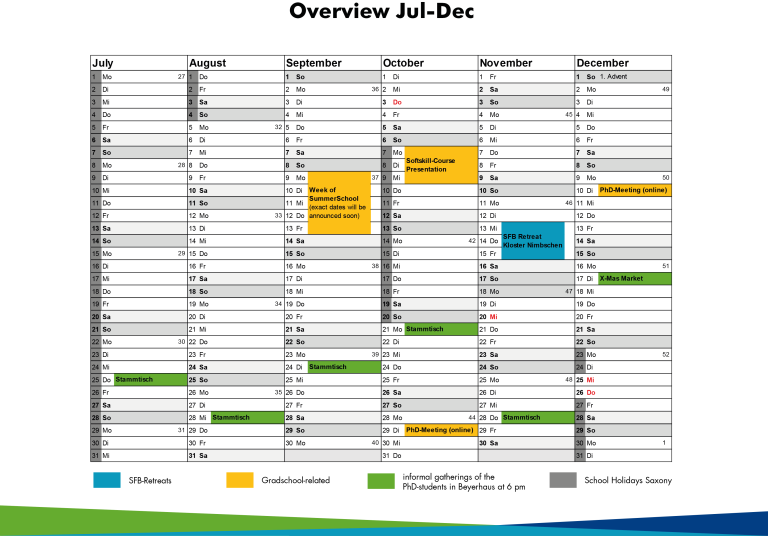
PhD Meetings
One of the tasks of the graduate school is to establish a good network between the post-scientists involved in SFB1423. To this end, monthly meetings are held for doctoral students to present and discuss their own research topics.
Juliane – PhD Regulations
Juliane – Outlook 2023
Feedbackround for posters for the 4GPCRnet conference
Victoria Groß (C04) gave a talk about her research
Juliane – Updates on program
Feedbackround for posters for the upcoming Retreat
Juliane gave an outlook of the upcoming programme of the Graduate School
Franziska Wiechert gave a talk about her work
Robin Schick (A06, AG Sträter) “Investigating the GPS cleavage of dCIRL”
Friederike Höpfner and Nina Reininghaus gave a talk about their research
Anne Borman gave a talk about her research
David Speck will give a talk about his research.
Florian Seufert gave a talk.
Farewell to 2020
Mareike Hemberger (Langenhan Group B06) will give an overview of her current work. Anett Albrecht will give a short insight in “Lab book guidelines & handling of research data” (30min).
Victoria Most (A07, AG Meiler) “Tackling the challenge of modeling long loops with irregular tertiary structure”
The second online PhD-Meeting will take place on Tuesday, June 23 at 3 PM.


